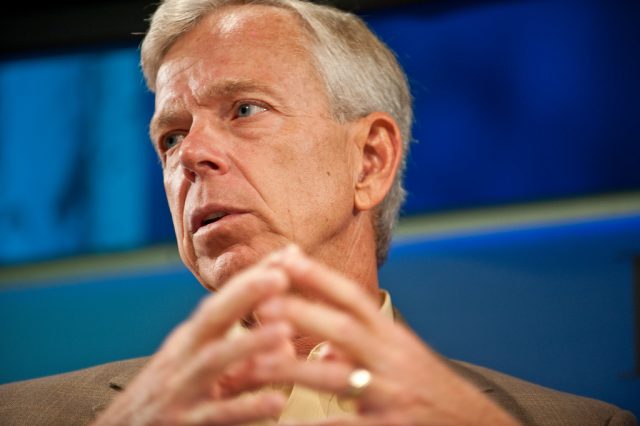
Verizon Wireless is testing the limits of the Federal Communications Commission's net neutrality rules after announcing that it will exempt its own video service from mobile data caps—while counting data from competitors such as YouTube and Netflix against customers' caps.
The only way for companies to deliver data to Verizon customers without counting against their data caps is to pay the carrier, something no major rival video service has chosen to do. While data cap exemptions are not specifically outlawed by the FCC's net neutrality rules, the FCC is examining these arrangements to determine whether they should be stopped under the commission's so-called "general conduct standard." The FCC is already looking into data cap exemptions—also known as zero-rating—implemented by Comcast, AT&T, and T-Mobile USA.
Verizon last month announced its new "FreeBee Data 360" program in which content providers can pay to send zero-rated data to customers. Verizon has also been pushing its new "Go90" streaming video service, and yesterday it added a perk to Go90's mobile app: free data.
"If you’re a Verizon Wireless post-paid customer, stream Go90 videos over LTE without using up your data," the app update for iPhone and Android said.
Go90 streams live sports and other shows. The app is free with ads, and it has some content that's exclusive to Verizon Wireless subscribers.
A Verizon spokesperson told Ars that "the FCC was made aware of this announcement" but didn't elaborate on discussions with the commission. We've also contacted the FCC but haven't heard back.
Verizon's implementation of zero-rating may raise more serious concerns than the zero-rating implemented by T-Mobile, which is exempting many third-party video services from caps without charging providers for the exemptions. (T-Mobile is also throttling video, making the comparison a little more complicated.)
Verizon gets its money
By making Go90 exempt from data caps while enforcing limits on Netflix, YouTube, and other video, Verizon can push customers toward its own service at the expense of rivals. If those rivals in the video market want the same benefits afforded to Go90, then Verizon would still benefit by taking money in exchange for data cap exemptions.
While the FreeBee website indicates that companies paying for data cap exemptions can sponsor only up to 30 seconds of mobile video streaming, Verizon told us that video providers can pay for as much as they want.
"Under FreeBee 360 there is no limit," Verizon told Ars. "In other words, if a video provider came to Verizon and said they wanted to run a television series and sponsor it, under Free Bee 360 they could make arrangements to do so and the viewers would see data free."
Verizon argues that it isn't giving Go90 any special treatment. "The same ability to sponsor data is available to any other content provider with the same pricing," Verizon told Ars. "There is no double dipping here, Verizon isn’t getting paid twice—consumers are paying for all data usage today. When consumers used sponsored services, the sponsor will pay for that usage instead of the consumer."
Netflix unlikely to play ball
While Netflix is a fan of T-Mobile's zero-rating, the video company doesn't seem likely to pay Verizon for data cap exemptions. Netflix does pay Verizon for network interconnection that improves video quality on home broadband connections, but it only did so under protest after months of performance problems.
Netflix declined comment when contacted by Ars today. We're also waiting to hear back from YouTube, which previously objected to T-Mobile's video program.
Besides video, FreeBee lets companies pay to sponsor up to 30 minutes of audio streaming for Verizon customers or app downloads and usage of a website or app.
Verizon explained its thinking a bit further to Re/code, claiming that Go90 made the decision on its own. Remember, Go90 is owned by Verizon, and Verizon Wireless is a wholly owned subsidiary of Verizon.
“Go90 has decided to take advantage of Verizon’s FreeBee Data 360 service, which allows them to pay for customer’s data usage associated with watching videos on the Go90 app,” a Verizon representative said according to Re/code. “FreeBee Data 360 is an open, non-exclusive service available to other content providers on a non-discriminatory basis. Any interested content provider can use FreeBee Data 360 to expand their audiences by giving consumers the opportunity to enjoy their content without incurring data charges.”
The Verizon-owned AOL is also sponsoring data through the FreeBee program.
FCC still thinking about zero-rating
The FCC recently demanded meetings with T-Mobile, AT&T, and Comcast about their zero-rating implementations.
Each carrier has implemented zero-rating a bit differently. Comcast zero-rates its own Stream TV service, which provides online video to Internet-only customers, but the company says it's beyond the reach of net neutrality rules because Stream TV is an IP cable service instead of one delivered over the public Internet.
AT&T's Sponsored Data program charges third parties, such as advertisers, for the right to deliver data without counting against consumers' mobile data caps.
AT&T's zero-rating might start to look a bit more like Verizon's. Re/code pointed out that AT&T is preparing a mobile video service of its own that may involve sponsored data.
Despite no explicit ban on zero-rating, the FCC's net neutrality rules has a general conduct standard in which the FCC judges on a case-by-case basis whether a practice "unreasonably interferes" with the ability of consumers to reach content or the ability of content providers to reach consumers. The FCC hasn't yet said whether it will put a stop to any specific zero-rating practices.
reader comments
106